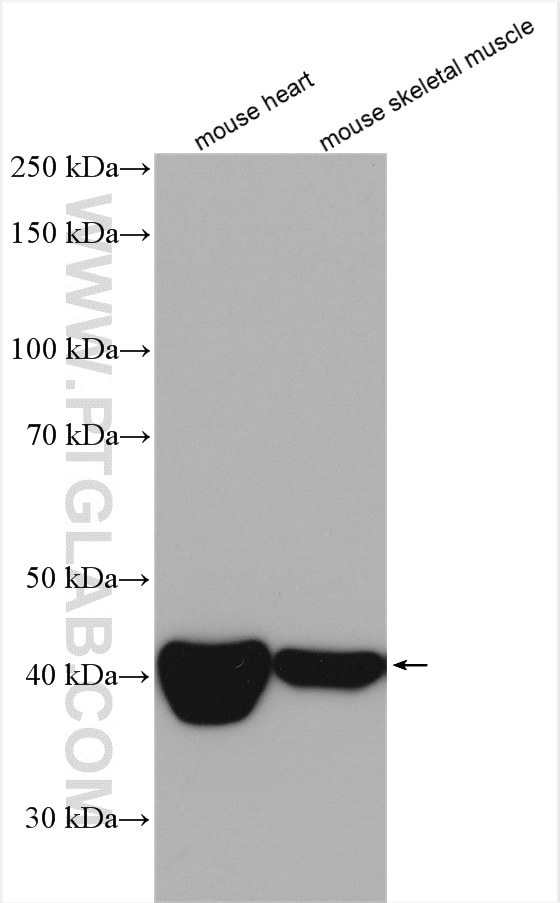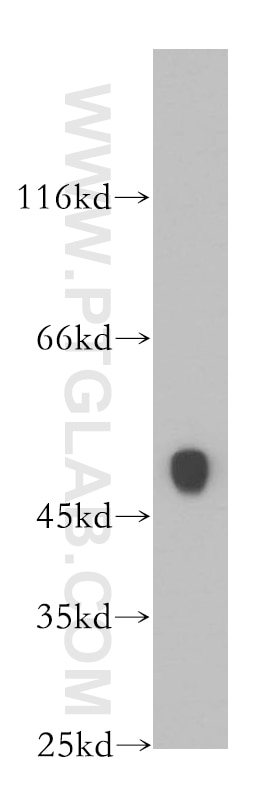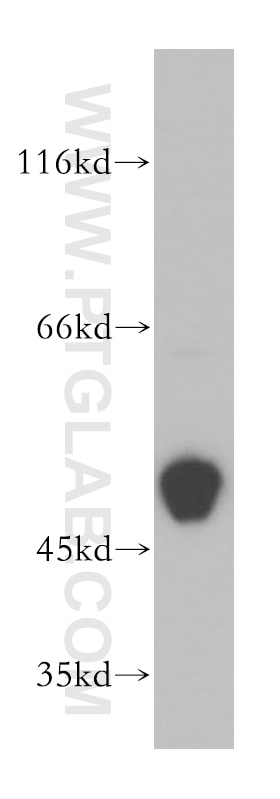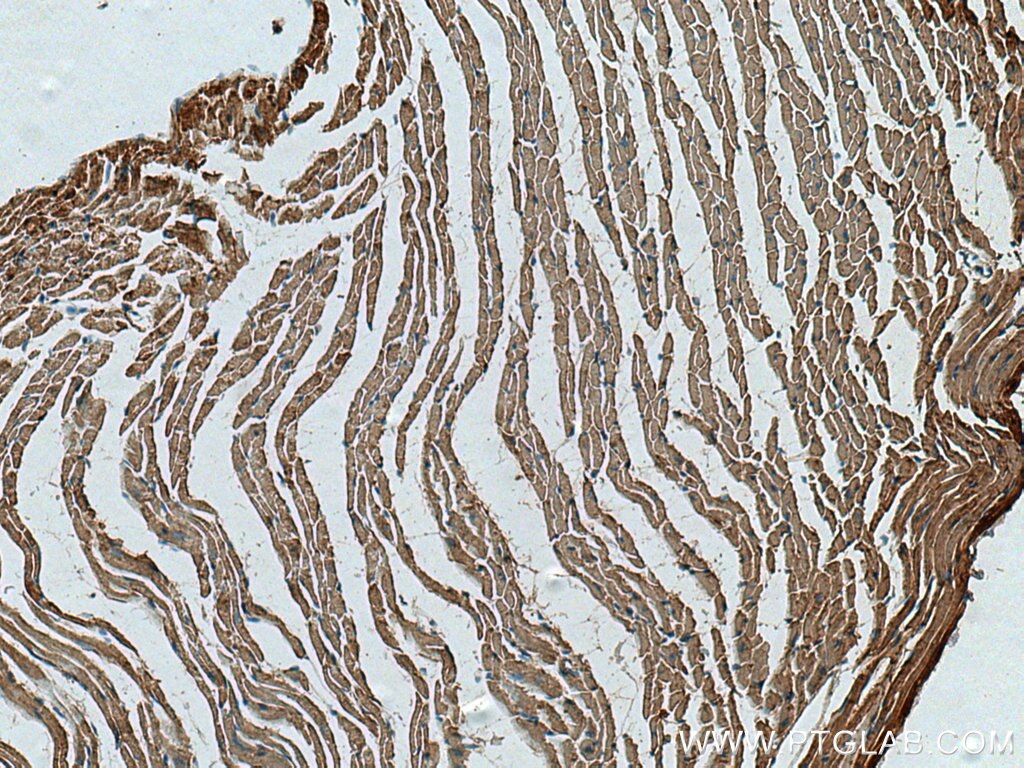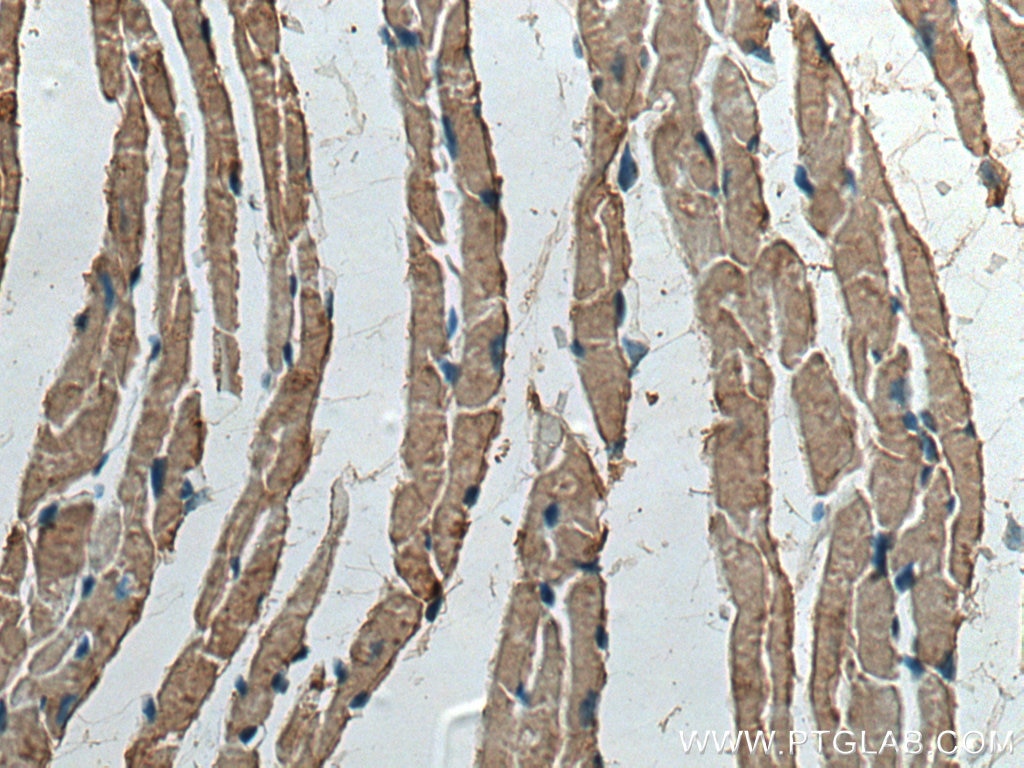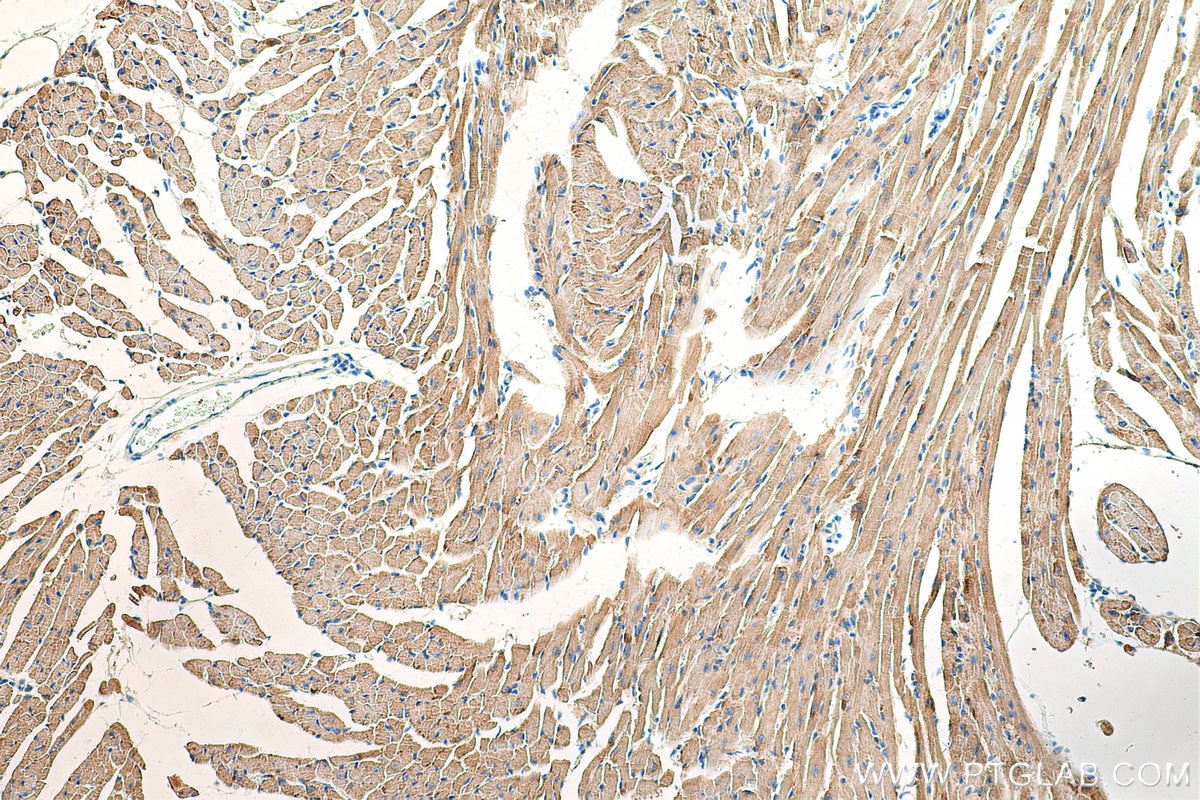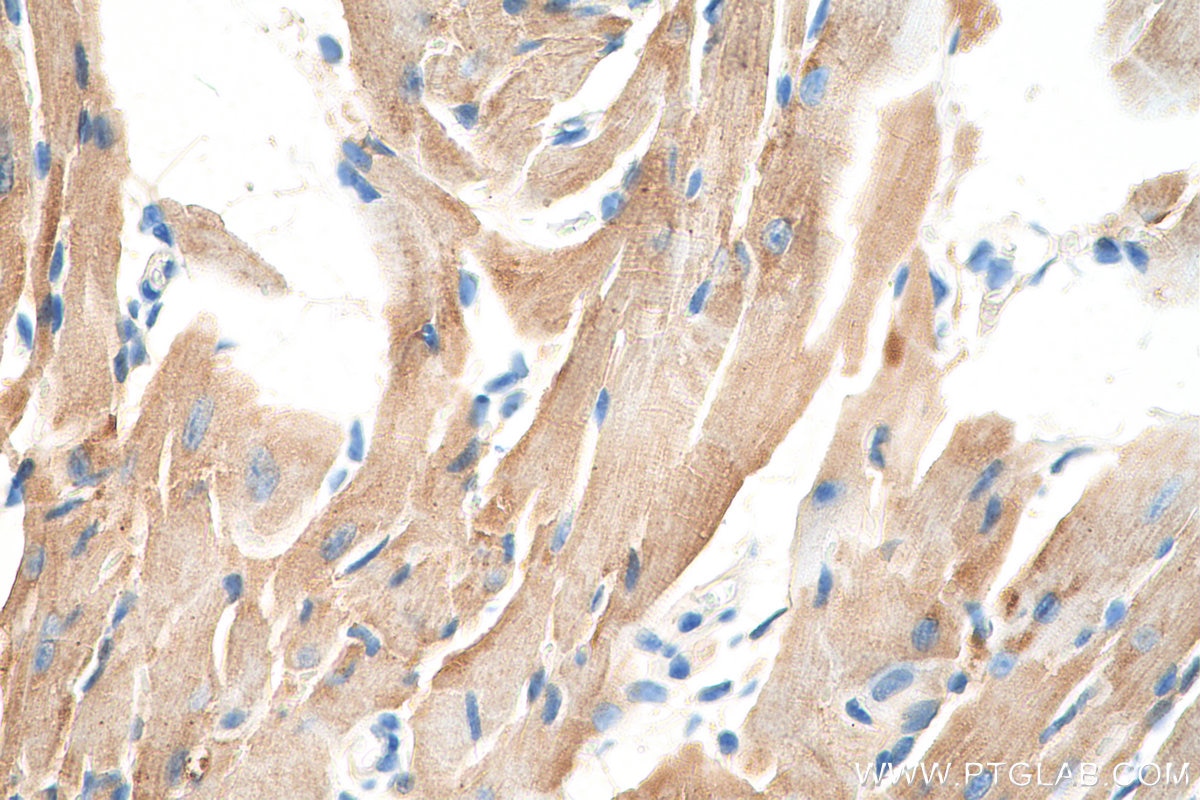- Featured Product
- KD/KO Validated
CKMT2 Polyklonaler Antikörper
CKMT2 Polyklonal Antikörper für WB, IHC, ELISA
Wirt / Isotyp
Kaninchen / IgG
Getestete Reaktivität
human, Maus, Ratte und mehr (1)
Anwendung
WB, IHC, IF, CoIP, ELISA
Konjugation
Unkonjugiert
Kat-Nr. : 13207-1-AP
Synonyme
Geprüfte Anwendungen
| Erfolgreiche Detektion in WB | Mausherzgewebe, humanes Herzgewebe, humanes Skelettmuskelgewebe, Maus-Skelettmuskelgewebe |
| Erfolgreiche Detektion in IHC | Mausherzgewebe Hinweis: Antigendemaskierung mit TE-Puffer pH 9,0 empfohlen. (*) Wahlweise kann die Antigendemaskierung auch mit Citratpuffer pH 6,0 erfolgen. |
Empfohlene Verdünnung
| Anwendung | Verdünnung |
|---|---|
| Western Blot (WB) | WB : 1:2000-1:8000 |
| Immunhistochemie (IHC) | IHC : 1:500-1:2000 |
| It is recommended that this reagent should be titrated in each testing system to obtain optimal results. | |
| Sample-dependent, check data in validation data gallery | |
Veröffentlichte Anwendungen
| KD/KO | See 1 publications below |
| WB | See 8 publications below |
| IHC | See 2 publications below |
| IF | See 1 publications below |
| CoIP | See 1 publications below |
Produktinformation
13207-1-AP bindet in WB, IHC, IF, CoIP, ELISA CKMT2 und zeigt Reaktivität mit human, Maus, Ratten
| Getestete Reaktivität | human, Maus, Ratte |
| In Publikationen genannte Reaktivität | human, Huhn, Maus |
| Wirt / Isotyp | Kaninchen / IgG |
| Klonalität | Polyklonal |
| Typ | Antikörper |
| Immunogen | CKMT2 fusion protein Ag3971 |
| Vollständiger Name | creatine kinase, mitochondrial 2 (sarcomeric) |
| Berechnetes Molekulargewicht | 419 aa, 48 kDa |
| Beobachtetes Molekulargewicht | 41-48 kDa |
| GenBank-Zugangsnummer | BC029140 |
| Gene symbol | CKMT2 |
| Gene ID (NCBI) | 1160 |
| Konjugation | Unkonjugiert |
| Form | Liquid |
| Reinigungsmethode | Antigen-Affinitätsreinigung |
| Lagerungspuffer | PBS with 0.02% sodium azide and 50% glycerol |
| Lagerungsbedingungen | Bei -20°C lagern. Nach dem Versand ein Jahr lang stabil Aliquotieren ist bei -20oC Lagerung nicht notwendig. 20ul Größen enthalten 0,1% BSA. |
Hintergrundinformationen
CKMT2 (Creatine kinase S-type, mitochondrial), also known as s-MtCK, is one of the creatine kinase (CK) isozymes that are tightly coupled to adenosine triphosphate (ATP) output via adenine nucleotide transport proteins or carriers, making it an important player in ATP synthesis and respiratory chain activity (PMID: 38172162). Enhancing Ckmt2 expression or activity can protect against myocardial injury caused by ischemia-reperfusion injury (PMID: 39457679).
Protokolle
| PRODUKTSPEZIFISCHE PROTOKOLLE | |
|---|---|
| WB protocol for CKMT2 antibody 13207-1-AP | Protokoll herunterladen |
| IHC protocol for CKMT2 antibody 13207-1-AP | Protokoll herunterladenl |
| STANDARD-PROTOKOLLE | |
|---|---|
| Klicken Sie hier, um unsere Standardprotokolle anzuzeigen |
Publikationen
| Species | Application | Title |
|---|---|---|
Cell Metab The phytochemical hyperforin triggers thermogenesis in adipose tissue via a Dlat-AMPK signaling axis to curb obesity. | ||
Mol Cell Proteomics Seminal Plasma Proteome as an Indicator of Sperm Dysfunction and Low Sperm Motility in Chickens | ||
Metabolism Sustained mitochondrial biogenesis is essential to maintain caloric restriction-induced beige adipocytes. | ||
Front Cell Dev Biol Hypoxia-immune-related microenvironment prognostic signature for osteosarcoma | ||
Mol Cell Proteomics Seminal Plasma Proteome as an Indicator of Sperm Dysfunction and Low Sperm Motility in Chickens. | ||
J Agric Food Chem Artepillin C, a key component of Brazilian propolis, induces thermogenesis in inguinal white adipose tissue of mice through a creatine metabolism-related thermogenic pathway. |
Rezensionen
The reviews below have been submitted by verified Proteintech customers who received an incentive for providing their feedback.
FH Neeraj (Verified Customer) (08-19-2025) | This antibody performed very well in validating my Western blot analysis following transfection in cell lines. It demonstrated high specificity, especially when compared to a similar antibody from another supplier, which showed non-specific binding. I also used it for immunofluorescence experiments, and the results were satisfactory, with clear and consistent staining
|
